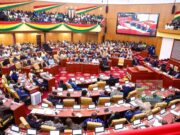Government estimates show that E-Levy is expected to generate GHS 2.4 billion in 2025, an increase from GHS 2.1 billion budgeted for this year. Similarly, the COVID-19 Levy is projected to bring in GHS 3.97 billion next year, up from GHS 3.1 billion in 2024.
The incoming NDC government’s proposal to scrap the E-Levy and COVID-19 tax could result in a GHS 6.4 billion revenue loss in 2025. Analysts warn that this development poses serious threats to Ghana’s fiscal sustainability.
The two tax streams are anticipated to contribute an additional GHS 1.2 billion in 2025 compared to the 2024 figures. The revenue shortfall may compel the government to resort to more borrowing, exacerbating the country’s unsustainable debt levels and increasing economic risks.
Analysts caution that removing these taxes without clear alternative revenue measures could undermine fiscal stability and derail the country’s fragile economic recovery efforts.
Some industry experts believe the solution lies in reducing import exemptions, which they estimate could generate around GHS 9 billion in potential tax savings. They are estimating potential tax savings of approximately GHS 9 billion in this regard.
Tax consultant Francis Timore-Boi says, “Direct tax exemptions at the ports alone amounted to about GHS 3.5 billion, of which the government approved approximately GHS 1.7 billion. Additionally, some items are zero-rated when imported. If those items are reviewed, we could generate significant revenue.”
“Combined, one can estimate close to GHS 9 billion from port exemptions and zero-rated imports. Therefore, if we reduce these exemptions, the revenue loss from abolishing the two levies can certainly be recovered.”
While the proposed tax cuts align with the NDC’s goal to alleviate the burden on households and businesses, the economic trade-offs require careful analysis, especially as the country’s recovery efforts are still ongoing.
Source: Citinewsroom





















